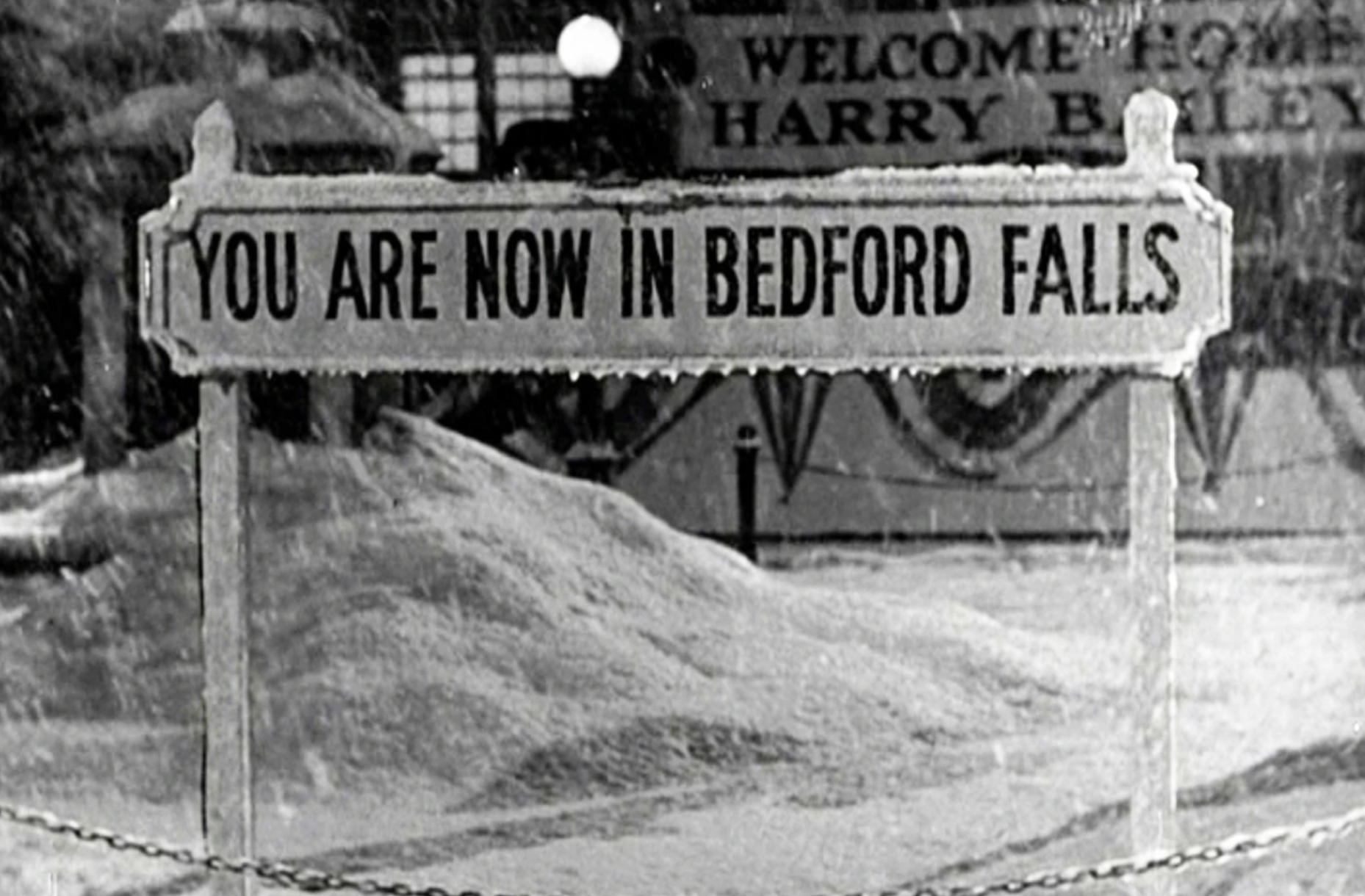This Wonderful Life
TW: Suicidal Ideation
It’s a Wonderful Life. For some, it’s an annual tradition, but I manage to fit in a viewing every other year. Like a masterfully written piece of literature, this 75-year-old classic cinematic work stirs a new response with each exposure: sometimes it charms, sometimes it commiserates, sometimes it makes me hot and angry.
December of 2015 was the lowest and darkest period of my life. My husband and I were trying to protect our children from a mentally ill and abusive family member, I had fled a terrorist attack in Paris, and I returned home to the news that I had breast cancer. Eleven months earlier, I was turning 40, fitting into a size 4, traveling the world with my family and feeling on top of it. By Christmas, I was experiencing suicidal ideation, an unfamiliar despair, and a grave vision of my future. I began to wonder if I deserved to be alive. One night, I asked my kids to snuggle down with me to watch It’s a Wonderful Life. As the film unrolled before us, I understood George’s distress so well I imagined taking his stubbly, crazed face in my hands and sharing a moment of visceral communion. When the film ended, I was silently weeping, but my twelve-year old twin daughters just sulked off to their room, one closing out the night with a quip, “I thought you said we were watching a Christmas movie!” It wasn’t anyone’s best moment in our house, admittedly. On that night, I needed hope, and George Bailey’s story helped me through that holiday and the following weeks.
Fast forward to a pre-pandemic year, sitting in front of the same fire, the same television, but with a completely different response. I was fuming at George’s total inability to say “Enough!” He wants to help people, but sometimes George gives too much in the way of help—the kind that hurts the recipient, the kind that prevents them from exercising their own abilities to solve problems. He becomes a co-dependent figure for Bedford Falls. Why is he giving Violet a payday loan? Why is he allowing Uncle Billy hold a position for which he’s not suited? That year, I wanted to yank him by the neck and slap him. Don’t you wonder if George Bailey is doing something good, or just doing something that will make people temporarily happy, without bringing the least amount of good to George and his household? Is he addicted to the sappy, dripping praises of his townspeople? Maybe he doesn’t really want to lasso the moon! Maybe he just wants the moon-faced gratitude of the people of Bedford Falls. At any rate, he seemed weak to me that year, and I felt the sort of indignation that prevents me from enjoying shows like Schitt’s Creek and Arrested Development. A good person surrounded by spineless incompetents who are running everything? I cannot cope. Some wounded part of my personality that needs additional IFS therapy screams “No!” at this thought, battling the primordial fear that I don’t have agency over my own life—but that anyone and everyone else does. I didn’t turn the film off that Christmas season, but I ended up feeling a bit of contempt toward George Bailey.
I took a couple of years off It’s a Wonderful Life—I needed some space and distance, the two best merchants of perspective. This time I focused a little more on the function of Mr. Potter. He is always lurking about, on a mission to take advantage, especially if it involves the Bailey family. While not always the direct cause of them, Mr. Potter, a master businessman, wastes no time capitalizing on George’s Bailey’s hardships. And then George will volley with a self-sacrificing act.
First, Mr. Potter takes advantage of his position on the board of the Building and Loan to initiate a dissolution, just shortly after Mr. Bailey’s death. So, George gives up his trip around the world and donates his college money to his brother with the verbal agreement that Henry will run the Building and Loan after graduation. Thus, George Bailey saves the Building and Loan for the first time. Henry, however, does not make good on his promise, leaving George with a choice.
After George’s wedding, because loan recipients aren’t making their payments on time, there is a run on the bank. Mr. Potter threatens ruin to the Building and Loan again, leaving George Bailey with a choice. So, George and Mary give up their honeymoon cash to save the institution for the second time.
Finally, Mr. Potter's corrupted character is on full display: when Uncle Billy misplaces $8000 on his way to the bank, Potter deftly manipulates that crisis to his own benefit, purloining the cash instead of returning it to the rightful owner. Then he dresses down a desperate George who has turned to him for help after a second run on the Building and Loan. Mr. Potter catalogs George’s life for him, humiliating him, telling him that he is worth more dead than alive, and then threatens to call the police on him. And this leaves George with a choice to make. You know the rest.
So, what is my response in 2021, after a pandemic outbreak, in the middle of political turmoil, staring down the tunnel of our future with no small number of misgivings? I think Mr. Potter will always be with us. He is the symbol of many things: powerful oppression, personal roadblocks, crushing self-doubt. I imagine the future for George and his family. George spends a year or two getting back on his feet and reflecting on his relationships. Mary gets a voice in how she has suffered during the fallout, and George takes ownership of his choices. He realizes and communicates the importance of setting boundaries with the community in regards to business. And, he devotes concerted effort toward deconstructing that savior complex so that the community can build new problem-solving skills of their own.
And then, I imagine George Bailey packing up all his family and spending a year adventuring around the world, visiting every place that was in his little book. It won’t be easy to leave Bedford Falls to its own devices for a while, but they are learning. And although he should have done it sooner, with these additions to his life, the trip is exponentially more … wonderful.

